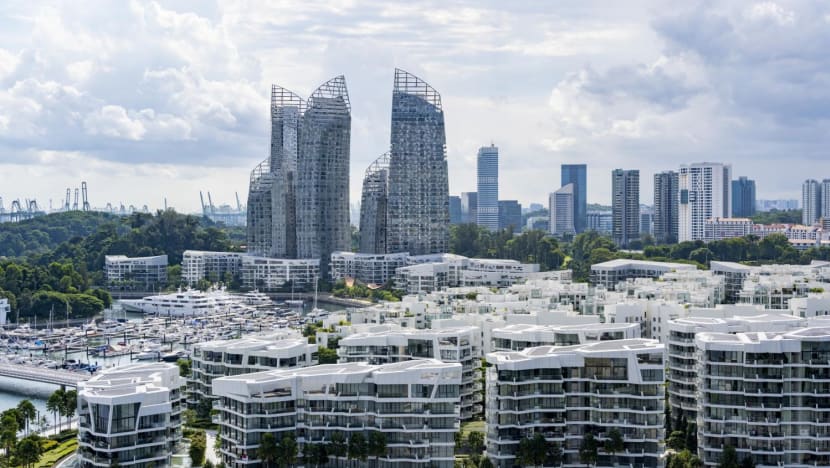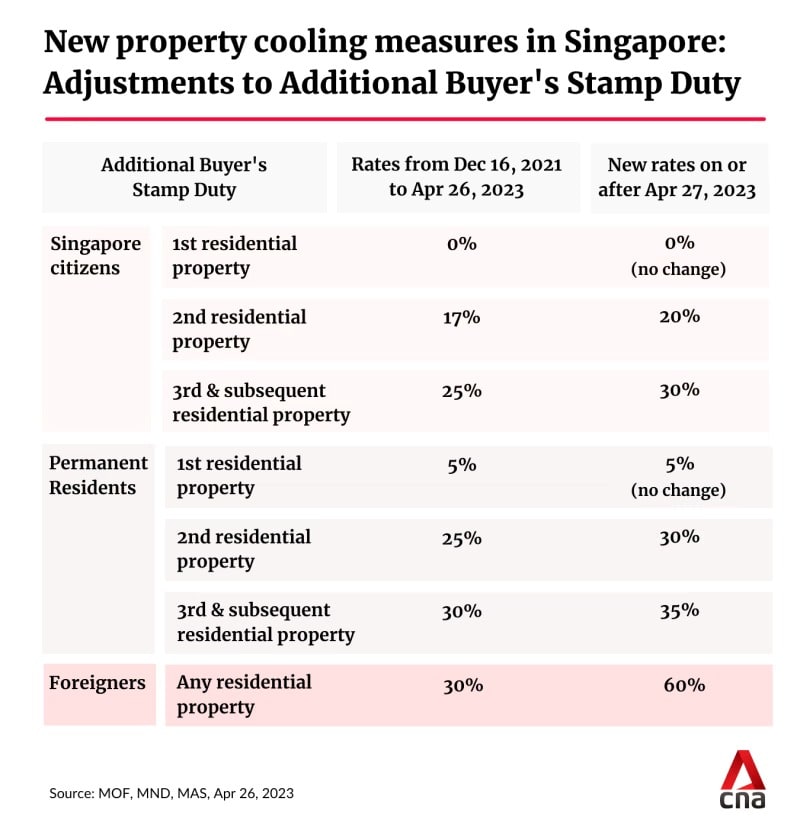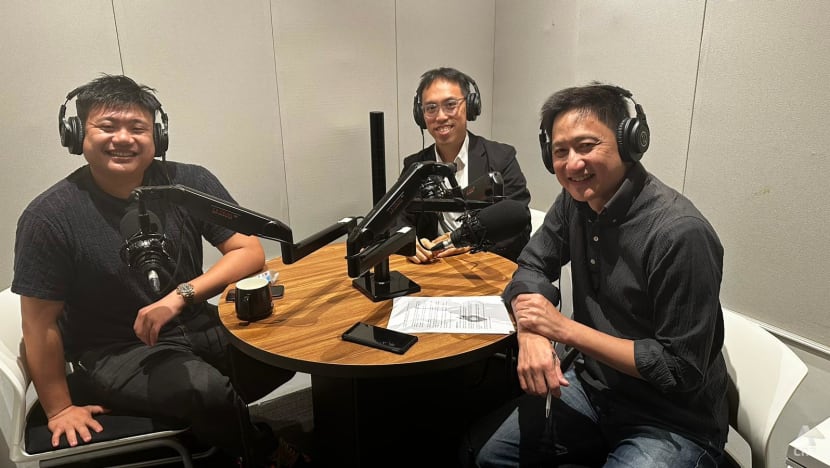Heart of the Matter: Why ultra-rich foreigners will still buy property in Singapore
Foreigners buying residential property in Singapore will now pay 60 per cent additional buyer’s stamp duty, up from 30 per cent. While this is the steepest increase in the latest round of property cooling measures, our guests on this episode of the Heart of the Matter podcast say it won’t dampen demand in the long term.

Condominiums in Singapore at the Keppel Bay Yacht Marina area in the city centre. (Photo: iStock)
SINGAPORE: When the government announced higher additional buyer’s stamp duties in the latest round of property cooling measures, real estate consultant Aric Lim’s foreign clients were concerned that this may not be the final hike.
“They were asking, ‘Is 60 (per cent) the last stop?’ Nobody knows right?” said Mr Lim, who works for Huttons Asia.
The doubling of the additional buyer’s stamp duty (ABSD) from 30 per cent to 60 per cent for foreign buyers may initially discourage those who want to settle down in Singapore, he told CNA’s Steven Chia on the Heart of the Matter podcast.
But they will soon “come to terms with it, bite the bullet and move on”.
Mr Lim was discussing the impact of the ABSD rate increase with Dr Lee Nai Jia, head of real estate intelligence, data and software solutions at PropertyGuru Group.
Among the fresh round of hikes announced on late Wednesday night (Apr 26), the raising of the ABSD rate for foreigners was the highest increase.
This is the third round of cooling measures since December 2021.

According to the Urban Redevelopment Authority data, the proportion of foreign buyers has increased to 6.9 per cent in the first quarter of 2023, compared to 3.1 per cent in the same period last year.
Speaking to the media the day after the announcement, Minister for National Development Desmond Lee explained that the ABSD increases are a “pre-emptive measure” to dampen local and foreign investment demand as interest in the residential market continues to build up.
“Foreign interest in residential property in Singapore as an asset class continues to be strong,” he added.
“And therefore if we don’t take early pre-emptive measures, we may see investment numbers both by locals and by foreigners grow, and that will add stress to Singaporeans who are looking to buy residential property principally for owner occupation.”
Foreign buyers who want to sink their roots in Singapore and contribute to the economy will think twice initially about buying a residential property, said Hutton Asia’s Mr Lim in the podcast.
But instead of turning to other cities to invest, some may even consider applying for permanent residency ahead of their planned timeline, he added, primarily because Singapore is seen as “a very comfortable environment for them, very safe”.
PropertyGuru Group’s Dr Lee also noted that even with the new ABSD rate, foreigners will still be attracted to buy properties here, compared to cities like Shanghai where prices are much higher.
Even with the additional 60 per cent, they may find it’s cheap.

Here are some highlights from their conversation:
SINGAPORE IS A SAFE HAVEN
Lim: I see a huge influx of foreigners, primarily because Singapore is a very safe haven for them to bring their family, and children here to seek education. And then they want to sink their roots here, because it's a very comfortable environment for them, very safe. When you compare all the countries in Asia, I think Singapore comes up top of their list.
Lee: “Taxes are actually prices on public goods and services."
We have a very good infrastructure, we have a very good education (system). And the ABSD is the price to pay (for these things).
DEMAND WILL REMAIN STRONG IN THE LONG TERM
Lee: We always forget, prices in other cities like Shanghai are also growing, also increasing and much higher than Singapore. So even with the additional 60 per cent, they may find it's cheap.
Lim: There will be a knee-jerk reaction and demand will ease in the next three months.
For the ultra-high net worth (individuals), this will probably take them a little while to settle down and some of them may still bite the bullet and buy.
CHANGES IN ABSD WILL TRIGGER A REACTION
Lee: Foreign buyers form a very small proportion of the buyers in Singapore. But what happened is they kind of trigger a related chain event. They bring up the demand, it could have a lot of spillovers to the surrounding market.
Lee: The question is, what happens when things turn sour? Then you have a major correction. The integrity of the financial system will be threatened in that sense, and it will have widespread impact on the economy.
For more of this conversation, listen to the Heart of the Matter episode here.















